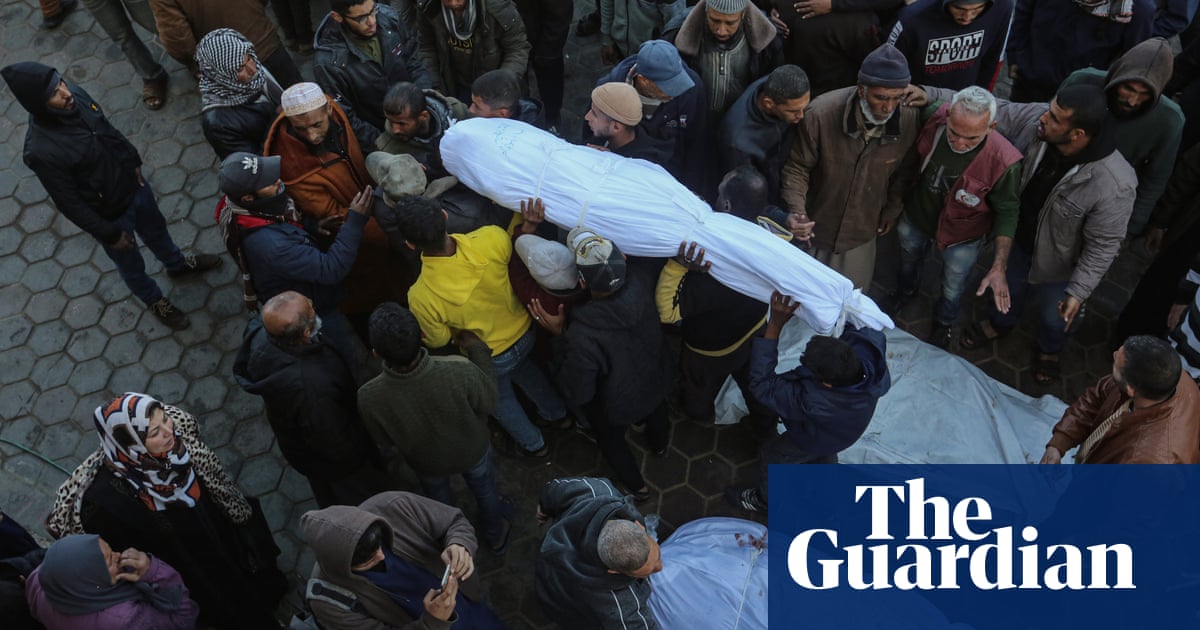Activists have called on Caribbean governments to halt the mass deportation of Haitians fleeing escalating gang violence that has claimed thousands of lives and displaced hundreds of thousands of people.
In the past month, tens of thousands of people have been deported to Haiti, including 61,000 from the neighbouring Dominican Republic, whose president recently pledged to deport 10,000 migrants a week.
In October, the US deported 258 Haitians, while Turks & Caicos, Jamaica and the Bahamas deported a combined total of 231, according to Sam Guillaume, a spokesperson for Haiti’s Support Group for Returnees and Refugees.
Activists and human rights organisations in the Caribbean say they are concerned about “draconian” deportation measures and argue that refugees who are returned to Haiti will simply join the estimated 700,000 people who were left homeless by the continuing conflict.
“A lot of them can’t make it back home because their neighbourhood is controlled by gangs,” said Guillaume.
Those held for deportation in the Dominican Republic are being forced into crowded jails with no water, no food and no beds, and are sometimes tear-gassed when they protest over their treatment, Guillaume said.
“People are being treated like criminals,” he said.
The allegations were denied by Julio Caraballo, a spokesman for the Dominican Republic’s migration office, who said deportations are carried out with “respect for the physical integrity of detainees, with respect for human rights and with dignity”, adding that meals and medical attention were provided to those detained.
In Jamaica, international human rights lawyer Malene Alleyne, who is supporting Haitian asylum seekers, also raised concerns about the processing of refugee cases.
Alleyne said that refugees had told her of their fears of being returned to a “war zone”.
“Jamaica has adopted a draconian approach that’s based on collective expulsion without assessing in an individualised way their protection needs and their risk of persecution on their return to Haiti, and so we have children and women who would have protection needs being sent back without due process and without an opportunity to speak with an attorney at law,” she said.
Jamaica’s Minister of National Security, Horace Chang, said immigration authorities were following the country’s laws.
“It’s not a government’s stance, it’s the law of the land. If you come here illegally and you’re not landed, they return you to your country. The law of the land says to me if the immigration authorities find a reason not to land them because they are here illegally, you send them back to their country. They do it to Americans, Colombians, Azerbaijan [nationals] – because we have had one – and we do it to the Cubans. We have sent home 17 Cubans,” he said.
Alleyne called for a regional approach to dealing with the mass exodus of people from Haiti, which is expected to rise amid a surge in violence despite the arrival of a Kenyan-led international policing mission earlier this year.
As gangs increase their control of Port-au-Prince and the country’s main airport, scenes of desperate families packing up to seek refuge are becoming more common in the embattled county.
Alleyne’s human rights organisation, Freedom Imaginaries, is campaigning for the Caribbean intergovernmental body, Caricom, to establish a framework to deal with asylum and refugee cases in line with humanitarian assistance principles.
She said: “We need an asylum procedure that allows us to screen people properly so that people with legitimate claims aren’t collectively expelled with others, and a multi-stakeholder approach that brings together government agencies, civil society international community, and, importantly, Caricom because this is not something that can be solved by any one actor acting alone, it has to be a region rights-based comprehensive approach.”

.png) 1 month ago
13
1 month ago
13













































